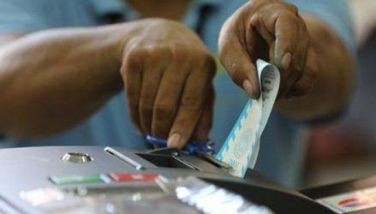Palace: Up to Congress to amend cyber law
MANILA, Philippines - Malacañang is giving lawmakers a free hand to amend the Cybercrime Prevention Act or Republic Act 10175, the implementation of which was stopped by the Supreme Court (SC).
Deputy presidential spokesperson Abigail Valte said members of Congress should decide which provisions in the law must be changed.
The law became controversial because of online libel and other provisions that various sectors said would curtail freedom of expression.
As the SC decided to issue a temporary restraining order against its implementation, presidential spokesman Edwin Lacierda said it should be a signal to Congress to amend the law.
President Aquino said the Cybercrime Law was meant to protect citizens.
“There are those who commit crimes using the Internet and this seeks to codify or to put into law precisely that these activities are illegal and set the basis for prosecuting those who would use the Internet for wrong purposes,” Aquino told students of The Learning Tree Child Growth Center Inc. last Tuesday.
“The Bible tells us even in the Garden of Eden there was a snake. So the Internet is really such a fantastic tool in the sense that when you look for information, and assuming you know where to look…there are a lot of people who put things on the net that actually are nonsense. But if you know how to look for the right stuff, instead of going through a library and really scouring all of the volumes that you would need (to find) the answer, it’s just a few clicks of the mouse away,” he said.
Aquino said the Cybercrime Law seeks to protect the identity of the user.
“It seeks to remove sites that are harmful to people. It seeks to take away people who are predators on the net – people who will want to do you harm, people who will want to perpetrate hoaxes,” he said.
Sen. Miriam Defensor-Santiago has filed a bill seeking to address deficiencies in the law with a new version, Senate Bill No. 3327, that would protect the rights and freedoms of netizens while defining and penalizing cybercrimes.
While acknowledging the legitimate concerns raised against RA 10175, Santiago said there was a definite need for a law that would address issues surrounding the information and communications technology (ICT) sector.
Citing a 2012 report by the Department of Science and Technology, the business process outsourcing industry, the information technology outsourcing industry and other outsourcing industries, also known as knowledge worker industries strongly dependent on fast and reliable ICT and Internet networks, have contributed $11 billion in export revenues, or an estimated 5.4 percent contribution to the country’s gross domestic product in 2011.
Under Senate Bill 3327 or the Magna Carta for Philippine Internet Freedom (MCPIF), the mandate and organization of the proposed Department of Information and Communications Technology (DICT) would be clearly defined.
The MCPIF provides the proposed DICT, law enforcement agencies, and the military with provisions for handling cybercrimes.
The bill also provides amendments to the Armed Forces Modernization Act to ensure the country has weapons and defenses against cyber attacks by terrorists, violent non-state actors and rogue or enemy nation-states.
It also mandates the Philippine National Police and the National Bureau of Investigation to combat cyber terrorism.
“We need to recognize that child pornography, child abuse, and human trafficking can be committed through the Internet, as much as hacking, piracy, and copyright infringement. We must define these evils in order for us to crush them,” Santiago stressed.
Santiago said she supports the objectives of the existing Anti-Cybercrime Law, particularly on protecting the rights and freedoms of Filipinos in cyberspace.
In her proposed bill, Santiago said she would address the issues raised against the current law, particularly on the protection of the rights of individuals.
“The MCPIF does not suffer from over breadth and vagueness in its provisions on libel, unlike the law it tries to replace. In fact, it treats libel as a civil liability rather than a criminal act, which is a step forward in the move to decriminalize libel,” she added.
Valte, on the other hand, said Malacañang was grateful for being “in agreement with Congress” on a number of bills, but belied the notion that the lawmakers were a “rubber stamp” of Malacañang.
- Latest
- Trending






























